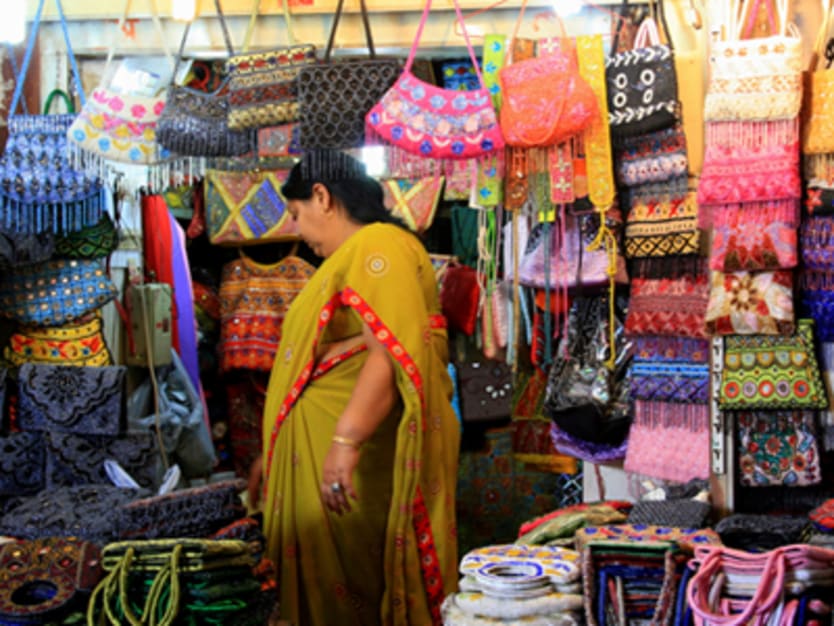
EDITOR’S NOTE: Both the public and the private sector all around the world are increasingly giving credit to female entrepreneurs as one of the main forces driving economic growth in developing countries. Gayle Tzemach Lemmon, deputy director of the Women and Foreign Policy Program at the Council on Foreign Relations, argues why more development aid should be directed to empowering these budding businesswomen.
“Gender and its relevance to macroeconomic policy is a relatively new field,” noted economist Heidi Crebo-Rediker in a recent speech titled “Women as a Driver of Economic Growth.” The speech focused on the critical — and often unheralded — role of women in pushing the economy forward; and the reluctance of some institutions, including the International Monetary Fund, to engage on the issue of the central role women could play in the economy. As Crebo-Rediker put it, “Excluding half of your resources from the economy, half of the world’s consumers, half of the world’s talent pool, doesn’t make sense.”
And it is not just economists focused on the role of women in the economy. The private sector, too, is increasingly interested. A Goldman Sachs report issued earlier this year noted the win-win of women’s economic inclusion. “Enabling women, particularly as entrepreneurs, benefits future generations because women tend to spend more on their children’s education and health, which should boost productivity as well,” the report argued. The report also cited Brazil, Mexico, and Nigeria as three emerging market countries in which women’s participation in the economy has expanded in the last two decades.
Dell recently ranked seventeen countries in its Gender Global Entrepreneurship and Development Index. Some of the factors included in the ranking were entrepreneurial environment, entrepreneurial eco-system, and entrepreneurial aspirations. “Female entrepreneurship is a key driver of a country’s prosperity; by creating the conditions for women entrepreneurs to flourish, countries are investing in their national well-being and competitiveness,” the report’s foreword noted. “Yet many women founders struggle to access the capital, technology, networks and knowledge that they need to start and grow their businesses.”
Indeed, access to skills remains an obstacle facing women. For example, the report found that “Malaysia, ranked in 9th place, exhibits the highest percentage of opportunity-driven female entrepreneurs, but at the same time, has a low percentage of female business owners who are highly educated in comparison with the overall female population. This is a trend seen in other developing and emerging economies as well, where the desire to exploit an entrepreneurial opportunity is high amongst the less-educated female population, yet the abilities (in terms of skills, networks, access to resources, etc.) are missing and so these entrepreneurial aspirations rarely move beyond a subsistent, small-scale business phase.”
Access to capital is also among the leading challenges confronting women entrepreneurs. “Worldwide, women receive less outside funding for their businesses than men,” the Dell report noted. “The gap becomes even more apparent for high-potential female entrepreneurs in need of greater amounts of risk capital typically provided by Venture Capital (VC). Comparative, sex-disaggregated data on VC funding is not widely available, but for the 7 countries for which data is available, men still dominate the top management positions in VC investments firms, and in some cases, such as Japan, women are almost entirely missing.”
Booz Allen’s recent report on the ”Third Billion” also focused on the untapped economic potential half the population represents. “In both advanced and emerging economies, women’s empowerment will require investing in female entrepreneurs at all funding levels,” argued the report. “The emphasis may be different depending on a country’s state of economic maturity — e.g., advanced countries may emphasize access to technology and energy, whereas emerging markets may focus on factors such as support and training for small business owners — but this need for investment applies worldwide.”
One potential solution for this lack of funding and need for investment may soon come from the International Finance Corporation, the private sector arm of the World Bank. In a recent report on private equity, the IFC raised the possibility of a fund that would “seek to invest in women-owned businesses globally through private equity funds” and would target small- and medium-sized businesses in India, Africa, and Southeast Asia.
“They drive job creation and economic growth, but are stuck in the middle: too big for microfinance, too small for commercial banks, and having few ways to build the management skills or industry knowledge they need to grow,” the IFC report writes of women. “The goal is contributing to the development of women-owned businesses as a sub-asset class in their own right, and encouraging more investors to look at investments through a gender lens.”
Edited for style and republished with permission from the Council on Foreign Relations. Read the original article.








